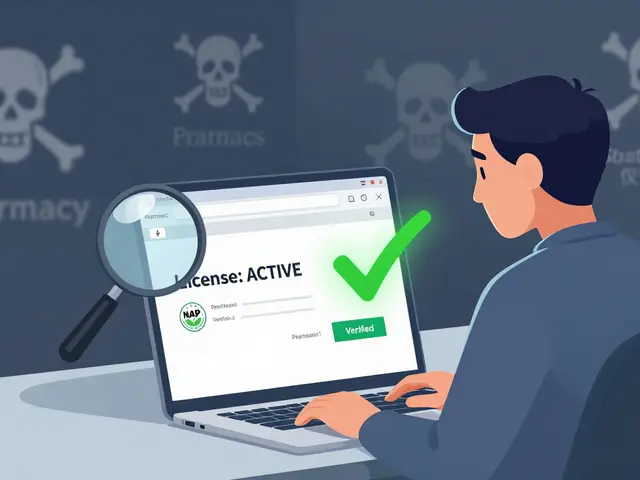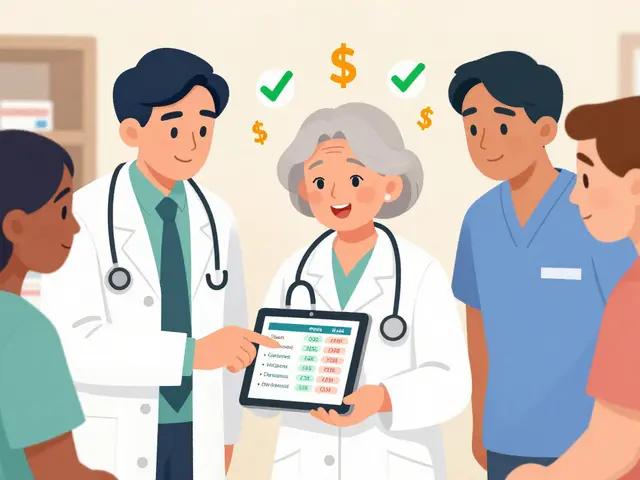Menstruation: real help for cramps, heavy flow, and irregular cycles
Periods can be a pain—literally. If you want quick relief, clearer signs of when to see a doctor, and smart ways to manage meds and supplements (especially when buying online), this page gives practical steps you can use right now.
Pain and symptoms you can treat at home
Start with basics: a heating pad on the lower belly, regular light movement, and sleep when you can. Over-the-counter pain relievers like ibuprofen or naproxen often work well—follow the dosing on the label and take with food. Track how long the pain lasts and whether it gets worse over months. If your period regularly stops you from work or school, that’s a sign to get checked.
Heavy flow matters. If you soak through a pad or tampon every hour for several hours, or pass large clots, talk to a clinician. Sudden very heavy bleeding is not normal and may need same-day care.
When your cycle is irregular or worrying
Missed or irregular periods can come from many things: recent stress, big weight changes, intense training, or thyroid problems. If your cycle changes for more than three months, check in with a doctor. Blood tests for thyroid function or simple hormone checks can explain a lot. If you use hormonal birth control and your bleeding pattern changes, swap notes with your prescriber before stopping the method.
Certain medications can affect your cycle. Short steroid courses like prednisone may alter bleeding while you take them. Thyroid medicines change cycles too—if you’re on levothyroxine or other thyroid treatments and notice new irregularities, talk to your provider about dose and options.
Infections like pelvic inflammatory disease can cause unusual bleeding, pain, or fever. If you have new severe pain, fever, or offensive discharge, get evaluated promptly. Antibiotics such as azithromycin are common treatments for some infections, but only use them under medical advice.
If fertility or long-term bone health is a worry (for women with very light periods or early menopause), ask about bone density and options to protect your bones. Low estrogen over time raises fracture risk—there are proven ways to lower that risk.
Thinking about supplements? Iron is useful if you have heavy periods and low blood counts—get a blood test first so you know the dose. Don’t start high-dose supplements without advice; they can cause side effects or interact with meds.
Buying meds online? Use caution. Only order from reputable pharmacies that require a prescription when appropriate, show clear contact info, and have real customer reviews. Keep prescriptions current, save receipts, and check the medication name and dose when it arrives. If something feels off—packaging, pills, or instructions—stop using it and contact a healthcare professional.
Want more details? Read related guides on this site about steroids and periods (Deltasone), thyroid medicines and cycle effects (Levothyroxine alternatives), antibiotics for infections (Zithromax), bone health, and inflammation and chronic pain. Those articles dive deeper into how treatments can affect your cycle and what to watch for.
Periods are normal but not supposed to ruin your life. Track symptoms, ask for tests when things change, and treat pain smartly. If you ever feel unsure, reach out to a clinician—early small fixes often prevent bigger problems down the road.

The impact of environmental toxins on the regulation of ovulation and menstruation
In today's blog post, we'll be discussing the impact of environmental toxins on the regulation of ovulation and menstruation. It's alarming to see how these toxins can disrupt our hormonal balance, leading to irregular periods and even fertility issues. Chemicals found in everyday items, such as plastic and beauty products, can mimic estrogen and interfere with our natural hormone production. Furthermore, exposure to heavy metals and pesticides has been linked to hormonal imbalances and difficulties in conceiving. It's essential for us to be aware of these environmental factors and take steps to reduce our exposure to protect our reproductive health.
view more




